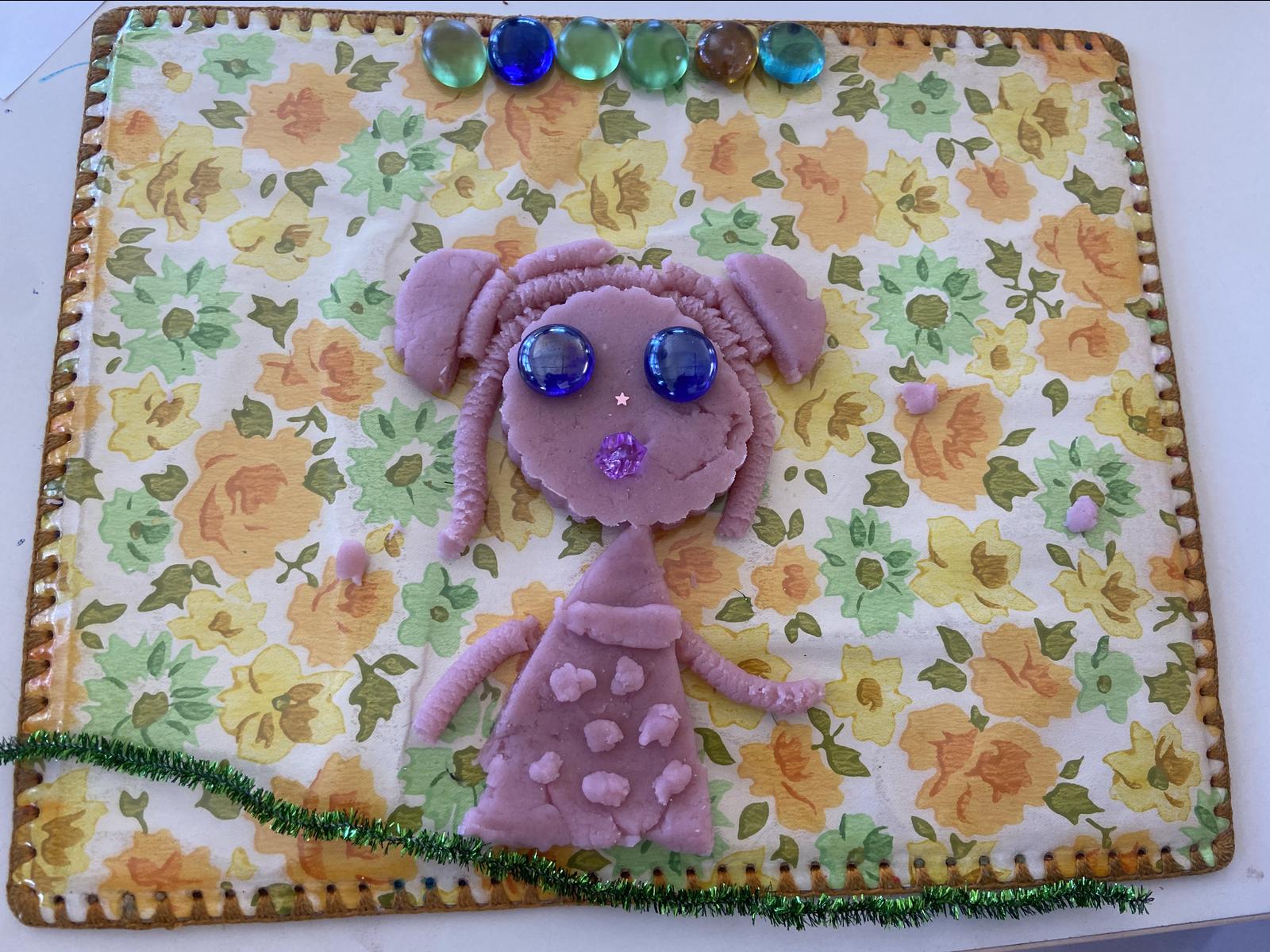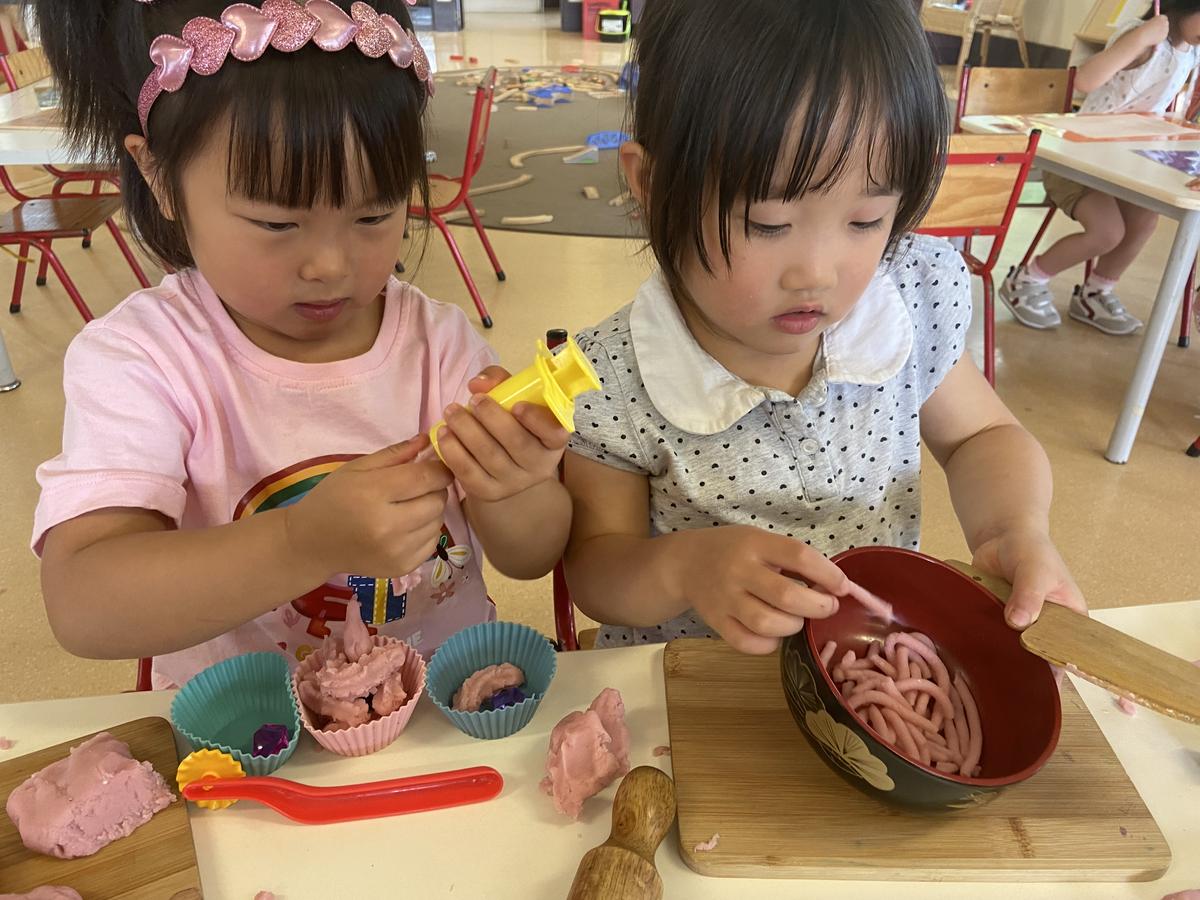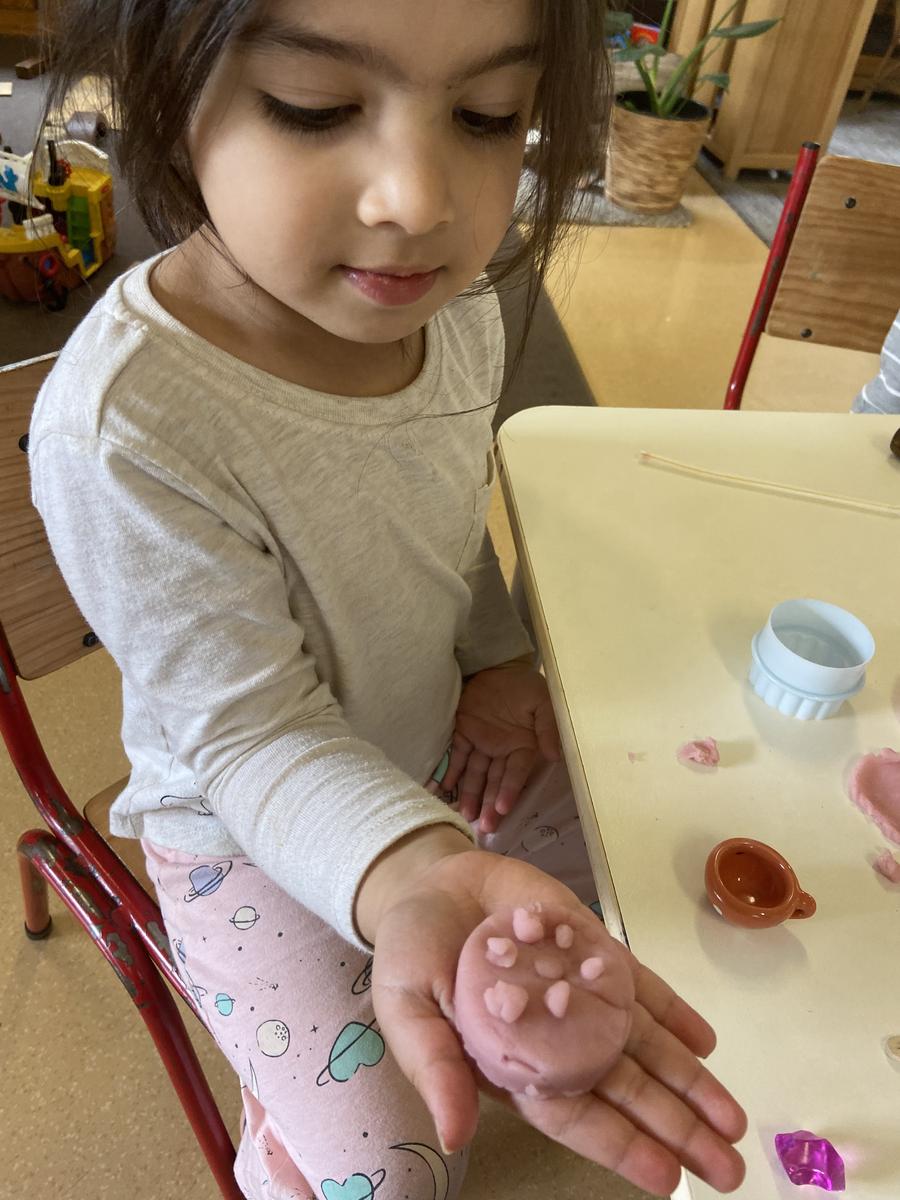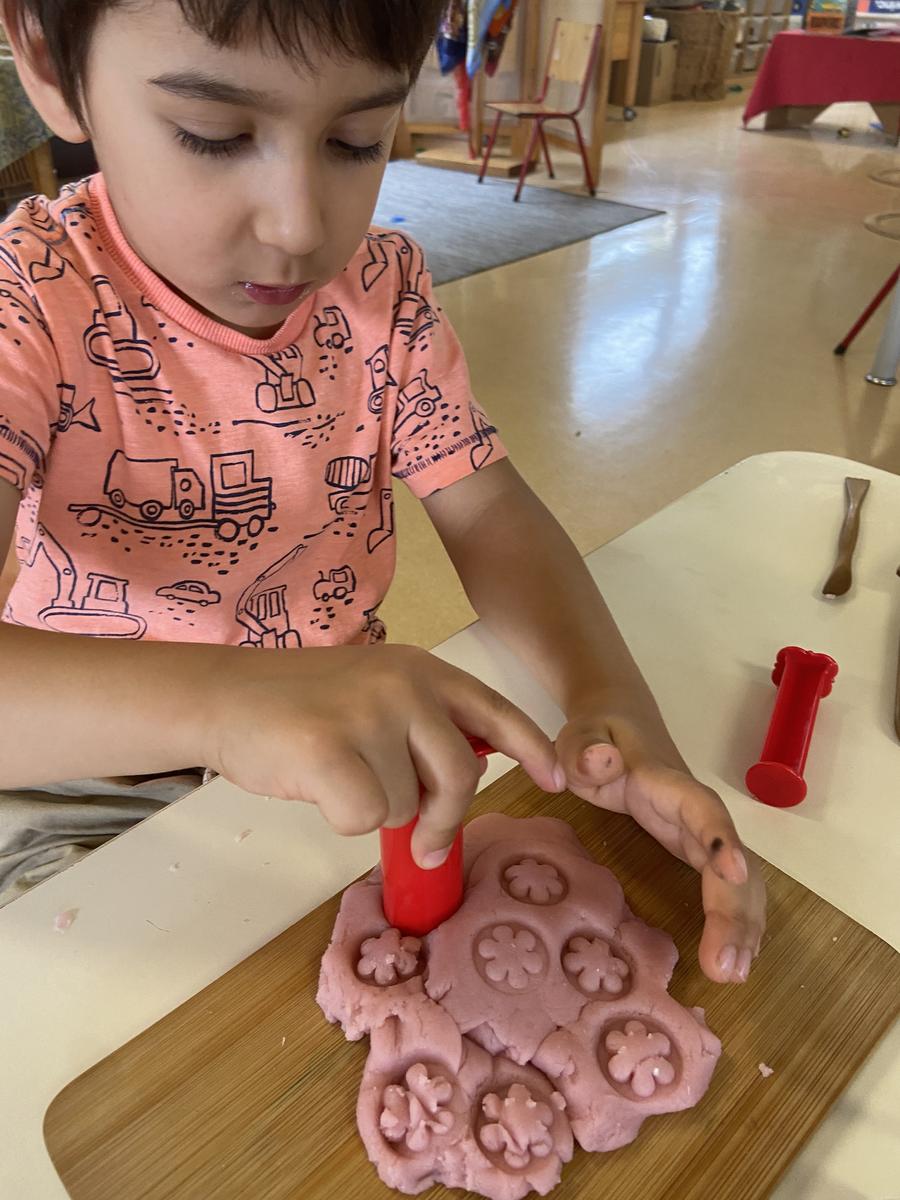Spotlight on a kindergarten experience- PLAY DOUGH
Why is playing with playdough so beneficial for your child's development?

Spotlight on a kindergarten experience- PLAY DOUGH
Why is playing with playdough so beneficial for your child's development?








There are so many benefits to play dough....
Fine motor development. Children need strong, developed muscles in their fingers and , hands for writing, drawing, and cutting. This is achieved by rolling, pushing, squashing, flattening, pounding, and manipulating the playdough.
Imagination/Creativity. The possibilities are endless. When a child works with playdough, they basically have a blank canvas waiting to be moulded into something unique from their imagination. Almost anything can be added to the playdough, sticks, stone, beads, buttons, leaves, flowers, scent.
Emotional. Play dough can be very calming. It is very relaxing and can reduce stress in an anxious child. It is great emotional outlet.
Engaging the senses. By adding different media with the play dough, you are creating a sensory experience. Children integrate the
information gained through their senses, this supports their cognitive development.
Social skills and Language. Playing with others creates opportunities for social interactions. What are you making? How did you make it? Can I have some? What colour is the (car/animal/rocks/buttons). These interactions are ways to further develop and enhance language skills. Specific vocabulary: pinch, roll, cut, chop, long, short, ball, snake, big, small, squash, twist, push, pull, positional words, action words, referring to the colours and features of their creations.
Literacy and Numeracy. Making play dough creates opportunities for measurement, cause and effect and the children also learn about reading information for meaning, such as recipe instructions. Using small objects and cutters provide opportunities for counting, classifying, and sorting. Using the play dough to form numbers and letters of the alphabet are a great way to support pre-reading and prewriting skills.
Early Years Learning Framework Outcomes*
Outcome 1: Children - · develop knowledge and self-confidence through new skill development, manipulating playdough and utensils. · interact with care, empathy and respect working together with shared materials.
Outcome 2: Children - · become aware of fairness through sharing materials and experiences.
Outcome 3: Children develop - · social and emotional wellbeing through creating and sense of achievement by working together. · fine motor skills through manipulation of the dough.
Outcome 4: Children develop- · creativity, imagination, enthusiasm, confidence and persistence through creating with dough. · a range of skills and processes such as problem solving, experimentation and investigation. · learning through connecting people, natural and processed materials from their environment.
Outcome 5: Children - · interact verbally and non-verbally with others through discussion of creations. Express ideas and make meaning through manipulating and sculpting with dough and other materials.